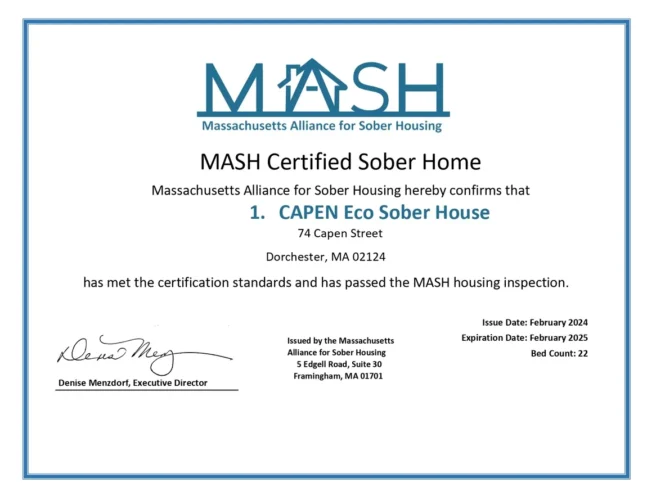
Through mutual support groups like Alcoholics Anonymous, members learn and practice these spiritual steps and principles, with a view to staying sober and helping others do the same. Other times, we cannot make direct 12-Step amends, such as when the other person has passed away or a business has closed. Personal advice is always helpful when we are trying to judge a situation. If you stole something from someone you cannot reasonably return the item to, you could simply resolve not to steal again from others as part of your long-term recovery goals.
The Twelve Steps of Alcoholics Anonymous
Before approaching Step 9, you need to complete the inventory in Step 8. This is a list of all of the people in your life whom you believe you have harmed. It can be a challenging list to write, even for those who want to embrace forgiveness and inner peace—but the list is important. By working through the list in Step 9 and making amends to each person named there, you will restore a piece of yourself with each conversation. When making an AA amendment, it’s important to apologize sincerely, be humble, accept responsibility for your actions, admit fault, change your behavior, and make an effort to rebuild trust.
What does AA Big Book say about making amends?
- In step 8, you ask God, or another higher power, for forgiveness.
- You can also turn to AA’s Big Book and Twelve Steps and Twelve Traditions (the 12 & 12) for guidance specific to Step 8.
- This was a good start for me but there were still a lot of “I’s” as I experienced this step.
- It can be a challenging list to write, even for those who want to embrace forgiveness and inner peace—but the list is important.
Once you enter into sobriety, there isn’t a set timeline for working Steps 8 and 9, so you might want to ask your sponsor and recovery support network for their insights about whether you’re ready. No doubt you will experience challenges and setbacks along the way. But living amends by prioritizing your recovery on a daily basis and doing whatever that next right thing might be for you, you will keep moving forward in living a life of good purpose. If you’re on the fence about Step 9, remember that making amends can help you and the other person.
A Short History of the 12 Principles of AA
It’s an integral challenge that necessitates confronting personal feelings of shame, pride, or entitlement. The purpose of Step Nine is to acknowledge the harm caused during active addiction and to make it right with the people involved, as much as possible. Even though they have similarities, living amends are different than making amends. While making amends is apologizing, living amends means living a completely new, sober lifestyle, and being committed to that lifestyle for both yourself and those you’ve harmed in the past. It means that you’re not just using your words to show a change, your actions are proving this change as well. Despite the emphasis 12-Step groups place on making direct amends, it’s important to understand that this is not always a realistic option.

Whatever the situation, there are a few ways to get started in the process of repairing wrongs with the people you most care about. Another example would be of a person who’s been a taker all their lives suddenly decides they no longer want to be self-centered and selfish. They may choose to make living amends by promising to change their ways and become more helpful to others.

- By Buddy TBuddy T is a writer and founding member of the Online Al-Anon Outreach Committee with decades of experience writing about alcoholism.
- But what happens when the person you need to make amends with dies before you’re able to apologize and change your ways?
- Step 4, which involves documenting every mistake you’ve ever made, is clearly tied to courage.
If someone does not want to hear from us, we respect that and do our best to move forward with our recoveries. But, by facing reality and the long-term impact of your actions, and making amends to those you’ve hurt, you’re able to make peace with the past and put it behind you and move forward. When you make amends, the way you look and feel about situations changes. You can gain clarity about what happened and what should have happened. On the opposite side of the street are those individuals who simply say, “All of my amends would hurt people.
Waypoint Recovery Center Blog
“Make direct amends to such people wherever possible, except when to do so would injure them or others.” The FHE Health team is committed to providing accurate information that adheres to the highest standards of writing. This is part of our ongoing commitment to ensure FHE Health is trusted as a leader in mental health and addiction care. Even so, you will have done all that you can to take responsibility for the past—and there’s a level of peace and freedom in that as well. How the other person chooses to respond to our amends is out of our control. Completing Step 9 is the next step forward in recovery, regardless of how the other person responds.

Recovery Coaching
One of the greatest regrets some people endure is not apologizing to a loved one for past wrongs before they die. Many individuals know that they need to apologize to someone they love but fail to do so out of pride or ego. As a result, the opportunity is lost to make things right if that person dies before they can apologize.
Recovery Stories
When first writing your list, don’t worry about including everyone you have wronged. Over time, as you strengthen and deepen your recovery from addiction, you will undoubtedly revisit Steps 8 and 9 many times. Eventually you will find you are making amends day by day through the positive actions you routinely take in living by Twelve Step principles. Yet, to be truly successful at forgiving and releasing past wrongs, you need to go directly to the individual you’ve hurt.
Many people suffering from alcoholism continue to find success in recovery by participating in AA’s program. One may find it easier to break into categories what one needs to make amends for. These categories determine the way the person approaches the process of making amends.
